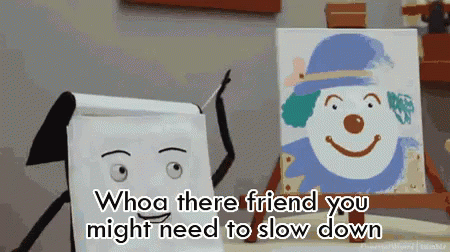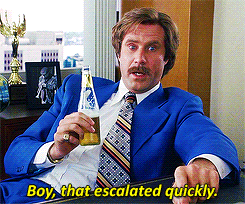The Fine Line Between Finding Your Flow and Becoming a Workaholic
So…What is Flow?
Although the practice is not new, the act of being “in the zone” or “finding your groove” was coined as flow by psychologist Mihaly Csikszentmihalyi back in the 1970s. He describes flow as is a mental state of operation in which a person performing an activity is fully immersed in a feeling of energized focus, full involvement, and enjoyment in the process of an activity. In short, it’s when a person becomes so immersed in an activity or project that they lose all sense of time, space, and self.
Too Much of a Good Thing
 As a project manager, as well as an artist, I am well versed in the benefits and “high” achieved from getting in the zone. When I’m there, I’m able to knock out projects effectively while also having fun. In times of high stress, however, things can get out of hand.
As a project manager, as well as an artist, I am well versed in the benefits and “high” achieved from getting in the zone. When I’m there, I’m able to knock out projects effectively while also having fun. In times of high stress, however, things can get out of hand.
When things get rough, I have been known to dive headfirst into the nearest distraction and hyper-focus on the activity at hand. I’ll get into such a groove of mindlessly taking on one futile task after another that I ignore my natural urges for food and sleep.
This ability may sound like productivity nirvana to some, but this workaholic behavior is not healthy. Like any other addiction, neglecting the world around you wears on your body and mind over time.
Set Boundaries
If you are susceptible to this behavior, set parameters upfront. Create a clear set of goals for the task at hand and also set deadlines for when they need to be completed. When setting these parameters, don’t forget to budget time for problem-solving.
Be sure to give yourself some wiggle room in case a task takes longer than initially anticipated. If you don’t, things are going to pile up very quickly. Then there’s a good chance you’re going to end right back in the rut you are so desperately trying to avoid.
Balance Goals with Abilities
If you are too rigid with these boundaries, all your energy is going to be focused on completing the task at hand the “right” way. A project that is too easy, on the other hand, will drag out for other reasons.
As boredom sets in, distractions will come more easily. Time will drag on. Flow comes most naturally when you are working on something with confidence, yet still find areas of challenge. As they say, time flies when you’re having fun!
Don’t Overthink It
Flow comes from doing something love. And much like love, a good flow requires a more natural approach. The more you try to force it, the further away you’ll be from losing yourself in the task at hand.
Instead of trying to control every little aspect, let loose a little and see what happens. If you’re feeling especially frustrated, don’t be afraid to take a break. Get up from your desk and grab a breath of fresh air. If that doesn’t work, maybe check out these stress relief tips from Dr. Pete. Come back with a clear head and see where your focus takes you.
Create a Distraction-Free Environment
Part of combating the overthinking cycle is finding a safe space to work. For most, this much more easily said than done. Whether it be our phones, computers, cars, heck, even our refrigerators, we are constantly plugged into the world around us. If you haven’t done so already, try to find a place where you can unplug.
For some, it’s a home office. For others, it’s a local coffee shop or library. Sometimes you may even have to get a little creative. Lorraine, for example, occasionally records content for her podcast from the comfort of her walk-in closet at home. Unorthodox? Maybe, but it works!
Isn’t It Ironic?
 As much as I hate to admit it, I’m pretty sure I’ve broken all of these rules while writing this blog post today. I let myself get too caught up in projects earlier in the day, which is now coming back to haunt me.
As much as I hate to admit it, I’m pretty sure I’ve broken all of these rules while writing this blog post today. I let myself get too caught up in projects earlier in the day, which is now coming back to haunt me.
I became so frantic about putting my thoughts into sentences that it took me far longer to flesh out this idea that I’ve been sitting on for weeks. It was not until I detached from this activity, then reconvened in a space of solitude that the words began to flow.
This admission is not to point out a weakness. Instead, take it as a demonstration of the fragile balance between knowledge and action. When outside “the zone,” one needs to constantly be self-aware of what they are doing and where they need to head next. Lose sight of that for too long, and that to-do list is going to pile up. When (yes, when) that happens, don’t fret. Instead, take a deep breath, lay out a plan, and get back to work.
